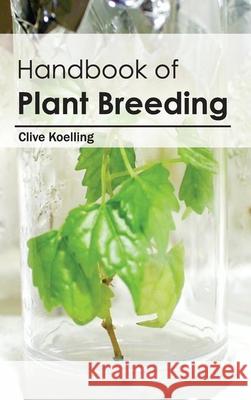Handbook of Plant Breeding » książka
Handbook of Plant Breeding
ISBN-13: 9781632394071 / Angielski / Twarda / 2015 / 298 str.
Altering the traits of plants for the purpose of generation of desired characteristics is referred to as plant breeding. Breeding of crop plants in order to make them more adapted to human agriculture systems has been in practice for the past 10,000 years. However, the invention of the Mendelian principles of genetics and the consequent development of quantitative genetics in the 20th century has resulted in genetic crop enhancement. In the past 50 years, plant breeding has commenced a molecular era based on molecular tools to analyze RNA, proteins and DNA and relate such molecular outcomes with plant phenotype. These marker trait relations develop rapidly in order to allow more effective breeding. The aim of this book is to provide important information to the readers regarding this field and serve as a valuable source of reference.
Altering the traits of plants for the purpose of generation of desired characteristics is referred to as plant breeding. Breeding of crop plants in order to make them more adapted to human agriculture systems has been in practice for the past 10,000 years. However, the invention of the Mendelian principles of genetics and the consequent development of quantitative genetics in the 20th century has resulted in genetic crop enhancement. In the past 50 years, plant breeding has commenced a molecular era based on molecular tools to analyze RNA, proteins and DNA and relate such molecular outcomes with plant phenotype. These marker trait relations develop rapidly in order to allow more effective breeding. The aim of this book is to provide important information to the readers regarding this field and serve as a valuable source of reference.











